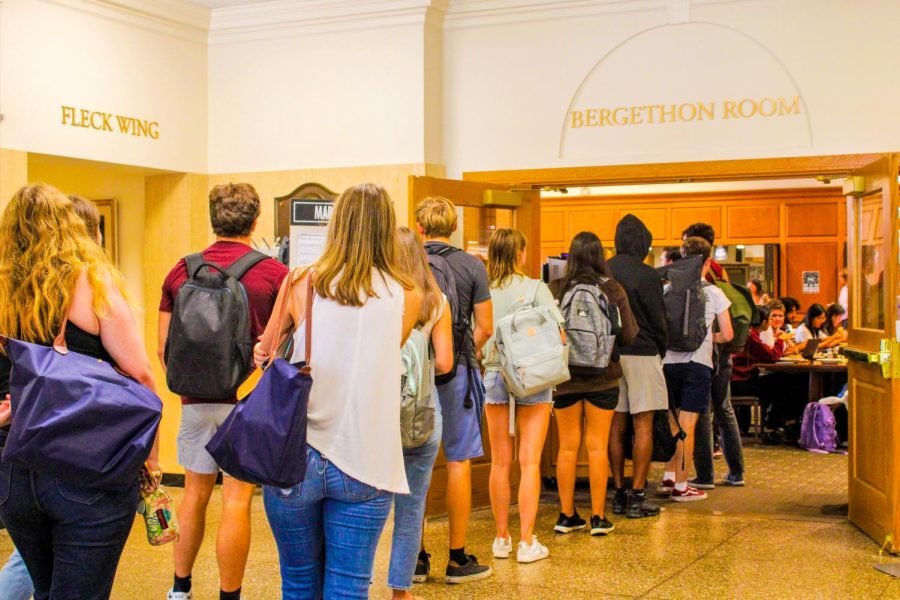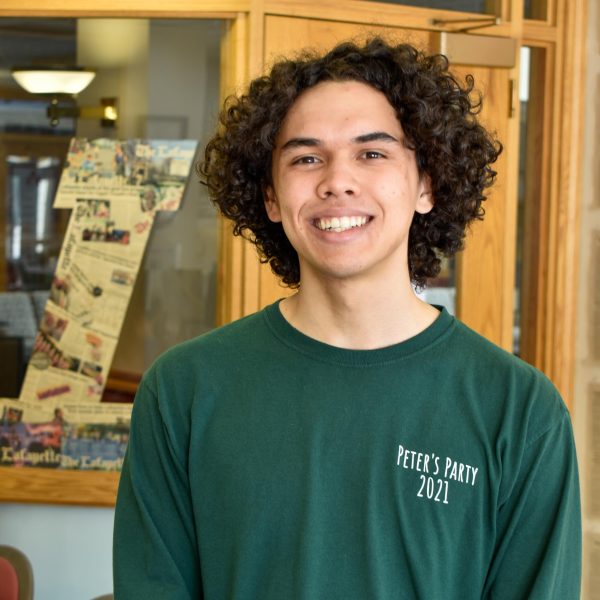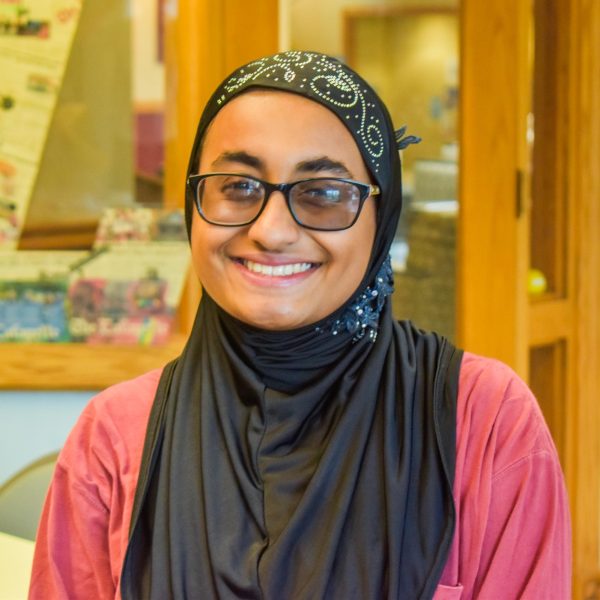Students opened Banner Self Service, the college’s course registration program, to a surprise last week: there are now classes during the period known as the common lunch hour. The lunch hour change is part of a larger package of alterations – including 15-minute breaks in between classes and earlier start times – that was years in the making.
Reactions to the changes, which were not announced by the college before they were implemented, have been varied.
“I was going through the different courses and looking at them [and] I saw some were shifted [to] 11:40 to 12:55,” Abigail Schaus ’24 said. “I was like, ‘Huh, that’s gonna be interesting.’ So it’s definitely factoring into my decision of how tempted am I to take [those classes].”
Schaus is a member of Kaleidoscope, an organization that has meetings during the lunch hour on Mondays. The new schedule will see classes taking place during the lunch hour on Mondays, Wednesdays and Fridays. According to Schaus, the organization has not yet worked out how to move its meetings to fit the new schedule.
“I’m sure we’ll figure something out,” Schaus said.
Sociology professor Rebecca Kissane will be teaching one of the 73 classes being offered during the new 11:40 a.m. to 12:55 p.m. block.
“It’s gonna be a tight day for me,” Kissane said of the days she will be teaching during the new block. “I’ll have about twenty minutes between classes. I’ll have to eat lunch either early or in between classes.”
Despite the newfound difficulties, and hearing from some students that they will not be taking the noontime classes because they wish to be with their friends, Kissane supports the change.
“I know the registrar has had a lot of struggle in recent years in terms of scheduling classes,” Kissane said. “My understanding was that this was a necessity.”
John Meier, the provost, agreed.
“One issue was that students were having [to] travel going back-and-forth from the College Hill Campus to the Downtown Arts Campus,” Meier wrote in an email. “Another was that there was an ever increasing number of classes scheduled outside of the regular blocks in the old calendar, which created a lot of conflicts for students looking to schedule their courses.”
Discussions for changing the schedule started in 2018, according to Meier. These discussions culminated in the Campus-Wide Course Scheduling Committee, sometimes referred to as CWCSC, being formed to study the issue in 2019.
The committee, composed of professors, administrators and two students, held open meetings and conducted a campus-wide survey. It did not reach a conclusion as to what the final schedule should look like before it was dissolved at the start of the COVID-19 pandemic, according to committee member Lawrence Malinconico.
“We went through iteration after iteration after iteration of possible schedules,” Malinconico said. “There were a couple that were sort of settled upon and then we never really voted on it, per se.”
The committee delivered three different proposals to the campus community in March of 2020, but disagreement was rife among the faculty.
“Our recommendations came forward just as the pandemic struck, so everything was stymied,” Nancy Waters, a biology professor who served on the committee, wrote in an email.
The committee delivered a report to then-college President Alison Byerly in May 2020 and was then dissolved.
The committee’s work was given a second life in the Faculty Academic Policy Committee last academic year, according to clerk of the faculty Joshua Smith. No members of the Faculty Academic Policy Committee, sometimes referred to as FAP, served on the Campus-Wide Course Scheduling Committee, though invitations to join the new committee were extended, according to Malinconico. No students or administrators served on the new committee, either.
“When we were back on campus, someone at a meeting of Department Heads and Program Chairs asked if we couldn’t bring the work of the CWCSC forward for a faculty vote,” Meier wrote. “That led to some members of the CWCSC coming to FAP to discuss their work and FAP took it from there.”
The Faculty Academic Policy Committee presented a final proposal to the faculty at its March meeting. According to Smith, there was “no discussion” of the proposal before it was approved by a margin of 93 to 15 with 10 abstentions.
Despite the lopsided margin of approval, there still exists disagreement about the new schedule.
“I think it’s great to give students more time to get down here and also get to other classes,” Karina Skvirsky, the art department head said in reference to the arts campus. “I think the one thing that is kind of the question mark is having studio classes at 8 a.m., so that is going to be a challenge.”
Skvirsky added that having classes during the common lunch hour will make scheduling department events more difficult, a sentiment echoed by Malinconico.
“As a department, for example, we’ve lost the noontime hours when we would typically have seminars,” Malinconico, a geology professor, said. “It’s going to be much more difficult to find a common hour for people.”







































































































